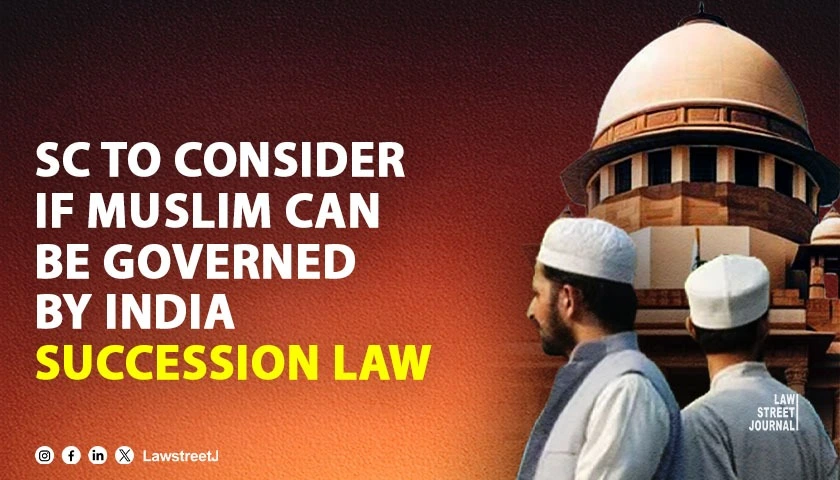NEW DELHI: The Supreme Court has decided to examine if a Muslim can be governed by secular Indian succession law, instead of Shariat without renouncing his or her faith, in order to deal with ancestral properties.
A bench of Chief Justice of India Sanjiv Khanna and Justice Sanjay Kumar decided to consider a plea by Naushad K K, a resident of Kerala's Thrissur district, who appeared in-person before the bench.
The bench sought response from Centre and Kerala government on the plea. The court ordered tagging of the plea with similar pending cases on the issue.
The petitioner wanted to be governed by the succession law instead of Shariat without leaving Islam as his religion.
The plea filed by Naushad sought judicial recognition and protection of Muslim individuals to testamentary autonomy, specifically, the right to opt out of the testamentary limitations imposed by Muslim Personal Law (Shariat) if they explicitly and voluntarily choose to do so.
The plea cited Section 58 (1) of the Indian Succession Act, 1925, which explicitly excluded Muslims from its application, compelling them to adhere to religious inheritance mandates without any option to opt out.
"This exclusion violates Article 14 by denying Muslims equal testamentary rights as enjoyed by others under the same secular law. It contradicts Article 13 (1) of the Constitution. Since Section 58 (1) predates the Constitution and conflicts with Articles 14, 21, and 25, it is unconstitutional and must be declared null and void," the plea said.
It sought a direction to the respondents, directing them to recognise and honour the wills executed by Muslim individuals, provided they comply with secular laws, without subjecting them to validation under Muslim Personal Law.
The plea also sought a direction to the legislature to consider enacting necessary amendments or guidelines to ensure testamentary autonomy for all individuals, irrespective of religious identity, in a manner consistent with fundamental rights guaranteed under the Constitution.
The plea said the fundamental rights under the Constitution take precedence over religious prescriptions.
"Muslim individuals who wish to exercise full testamentary freedom face an unconstitutional dilemma and are compelled to resort to extreme measures such as marrying under the Special Marriage Act, converting to another religion, and executing Hiba (gift). These extreme legal manoeuvres force individuals to compromise their religious identity or financial security merely to exercise their constitutional right to testamentary freedom,” the plea said.
In April last year, the court had agreed to consider a plea of Safiya P M, a resident of Alappuzha and general secretary of 'Ex-Muslims of Kerala’, that she is a non-believer Muslim woman and wanted to deal with her ancestral properties under the succession laws instead of Shariat. Another similar plea filed in 2016 by ‘Quran Sunnat Society’ is also pending in the top court which will now hear the three petitions together.
The petitioner said he does not challenge or seeks to reform Muslim Personal Law itself but questions whether the State has the duty or constitutional authority to enforce religious mandates against an individual's expressed will, especially when such enforcement violates fundamental rights guaranteed under the Constitution.
He pointed out under the Muslim Personal Law (Shariat), a Muslim individual can bequeath only up to one-third of their estate through a Will, and among Sunni Muslims, this is limited to non-heirs. The remaining two-thirds must be distributed among legal heirs according to fixed Islamic inheritance principles (Faraid). Any deviation from this, is deemed invalid unless the legal heirs consent.

















